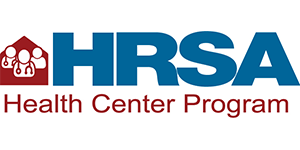
What is Risk Management Essentials Boot Camp?
Health Resources & Services Administration (HRSA) Federal Tort Claims Act (FTCA) is committed to assisting deemed entities in meeting their risk management and patient safety educational needs. This commitment has led HRSA to create the Risk Management Essentials Boot Camp. Expert faculty from the American Society for Health Care Risk Management (ASHRM) will provide attendees with a mix of theory and practice about the essentials of operating a risk management program.
This boot camp is an excellent opportunity to expand your knowledge and develop fundamental risk management skills. The boot camp is packed with innovative sessions that count toward the FTCA annual training requirement for risk managers.
During the boot camp, attendees will learn about the role of the risk professional, risk Identification, risk analysis, and the process for completing a thorough and credible root cause analysis (RCA). The claim management process will be examined, including strategies to reduce litigation. Crisis management will be discussed, and the elements of a crisis management plan will be defined. Finally, credentialing and privileging will be reviewed, as well as informed consent and documentation in the health record.
The boot camp will include the following modules and learning objectives:
Module 1: Introduction and Enterprise Risk Management (ERM)
- Describe the history of risk management
- Recognize the broad scope of health care risk management
- Discuss the definition of risk management
- Outline the steps in the risk management decision making process
- Introduce enterprise risk management (ERM)
Module 2: The Role of the Risk Professional
- Describe different organization types and department structures
- Define risk management responsibilities and skills
Module 3: Risk Identification
- Define risk identification
- Review current areas of loss potential
- Discuss methods to identify risk
- Formal
- Informal
- Outline regulatory and accreditation requirements regarding identification and reporting of events
Module 4: Risk Analysis
- Define risk analysis
- Discuss the purpose of risk analysis
- Identify ways to analyze identified risks
- Identify tools to help assess risks
- Identify some of the common problems
Module 5: Risk Control
- Define risk control
- Review risk management process
- Identify risk control techniques
- Credentialing and privileging
- Explain the difference between credentialing and privileging in health care organizations
- Identify clinical risk management concerns
- Discuss possible solutions
- Documentation and informed consent
- Define the purposes of the health record
- Identify legal challenges with an incomplete record
- Describe EMR risk management concerns
- Define the elements of informed consent and informed refusal
Module 6: Root Cause Analysis
- Review the purpose of performing a Root Cause Analysis (RCA)
- Recognize different methodologies for completing a RCA
- Recognize the elements of a RCA
- Outline the steps for completing a thorough and credible RCA
- Describe the pitfalls of the RCA process
Module 7: Crisis Management
- Describe crisis management
- Describe responisilities of crisis management team
- Define elements of crisis management plan
Module 8: Risk Management Program and Goals – Putting it all Together
- Describe risk management authority
- Define risk management integration and common terms
- Describe how risk management functions within the organizational structure
- Describe the components of a Risk Management Plan/Manual
- Describe the composition and functions of the Risk Management Committee and medical staff involvement
- Describe key considerations for a risk management data management
AGENDA
Please select your time zone
Module 1: Introduction and ERM

Georgene Saliba
Module 2: The Role of the Risk Professional

Jean Hood
Module 3: Risk Identification

Georgene Saliba
Break
Module 4: Risk Analysis

Jean Hood
Break
Module 5: Risk Control
- Credentialing and Privileging
- Documentation and Informed Consent

Georgene Saliba

Jean Hood
Wrap Up and Q&A

Georgene Saliba

Jean Hood
Please select your time zone
Module 6: Root Cause Analysis

Jean Hood
Module 7: Crisis Management

Georgene Saliba
Break
Module 8: Risk Management Program and Goals – Putting it all Together

Jean Hood
Wrap Up and Q&A

Georgene Saliba

Jean Hood
MEET OUR SPEAKERS

Cyndi Siders
MSN, RN, CPHRM, CPPS, CWCA, DFASHRM
Cyndi has more than 30 years of healthcare, administrative and insurance experience, 25 of those focused on risk management and patient safety. Cyndi’s responsibilities as Executive Consultant of Siders HealthCare Consulting, LLC include providing customized risk management and patient safety professional consultation and strategic support, coaching, mentoring and education for healthcare organizations and health systems; risk management companies, insurance and claims management companies and insurance agencies.
Cyndi has served as vice president of consulting services for two professional liability insurance companies providing leadership for a team of consultants delivering risk management and patient safety consultative services, education, and strategic support for clients nationally.
Cyndi has Bachelor and Master of Science degrees in nursing from the University of North Dakota. She is a graduate of the Healthcare Risk Management Certificate Program co-sponsored by MMI Companies Inc. and the University of Health Sciences/The Chicago Medical School. Cyndi is a distinguished fellow with the American Society for Healthcare Risk Management, a certified professional in healthcare risk management from the American Hospital Association, a certified professional in patient safety from the certification board for professionals in patient safety, and an advanced master trainer in TeamSTEPPS®. Cyndi serves as faculty for the ASHRM Health Care Risk Management Certificate Program. Cyndi is a frequent state and national speaker on a variety of risk management and patient safety topics and has authored several national publications, including chapters in ASHRM publications. Cyndi is a past recipient of the ASHRM Research Incentive Award.

Jean B. Hood
RN MSN CPHRM CPPS FASHRM
Jean is the Corporate Executive Director of Clinical Risk Management for AdventHealth, a large not-for-profit, faith based unified healthcare system that provides whole-person care in diverse markets throughout nine states. Jean has been a registered nurse for over 35 years. Her past nursing experience was in critical care before becoming a leader in Clinical Risk Management. Jean is an active member of both the American Society for Healthcare Risk Management (ASHRM) and the Florida Society for Healthcare Risk Management and Patient Safety (FSHRMPS). Jean was recognized as ASHRM’s Risk Management Professional of the Year for 2021 and is a previous recipient of the FSHRMPS’ Professional Recognition Award. The Clinical Risk team at AdventHealth, under Jean’s leadership, received ASHRM’s Patient Safety Innovation award in 2018. Jean is a faculty member for ASHRM’s Risk Management Certificate Program and coordinates a Florida state specific Risk Management 101 program for FSHRMPS.
Jean Hood is also an Executive Healthcare Consultant and the owner/manager of QRS Healthcare Consulting, L.L.C.

Georgene Saliba
RN, BSN, MBA, CPHRM, FASHRM
Georgene is currently the Vice President, Insurance for UHS of Delaware, Inc. In that role, she places all lines of insurance, oversees claims management, workers’ compensation, behavioral health and acute care risk management, environmental risk and emergency management functional areas. Prior to assuming this position, Georgene was the Senior Director, Corporate Risk Management, Acute Care, where she was responsible for analysis and oversight of the risk management and patient safety functions for all UHS acute care facilities, including participation in facility surveys to evaluate functionality of the facility risk programs and performance of risk staff. Prior to coming to UHS in 2014, she was the Administrator Risk Management & Patient Safety for Lehigh Valley Health Network in Allentown PA.
She is a diploma graduate of the Hospital of the University of Pennsylvania, obtained her BSN from Cedar Crest College and her MBA from DeSales University.
She holds the CPHRM and FASHRM designations. She is a Past President of ASHRM and a current faculty member. She has been a speaker both nationally and regionally on risk management and patient safety topics.
MEET OUR SPONSORS

The Health Resources and Services Administration (HRSA) Bureau of Primary Health Care (BPHC) funds health centers in medically underserved communities, providing access to affordable, comprehensive, high-quality primary health care services for low-income, uninsured people who face other obstacles to getting health care.
The Federal Tort Claims Act (FTCA) Program is the functional unit in the Office of Quality Improvement (OQI) that administers the Federally Supported Health Centers Assistance Acts of 1992 and 1995 (FSHCAA) which provides medical malpractice protections to entities that meet specific program requirements. In addition to providing malpractice protections, FTCA provides training and technical assistance to health centers and free clinics.

Kepro is a leading provider in the industry with 35 trusted years of experience and deep clinical expertise. Kepro uses their understanding to provide service offerings unique to the market with the ability to connect the right comprehensive solutions of tailored services to the specific populations of our clients across a broad spectrum of healthcare management needs.
Kepro’s capabilities provide program beneficiaries with access to vital services and outcome impact through their agile and innovative whole person-centered approach. Creating health solutions for the vulnerable population of their partners across the continuum of physical, behavioral, social, and pharmacy health.
With 18 offices and over 1,500 employees across the United States, Kepro has improved the lives of more than 77 million beneficiaries nationwide.

Established in 1980, the American Society for Health Care Risk Management (ASHRM) is a professional membership group of the American Hospital Association (AHA) with nearly 6,000 members representing risk management, patient safety, insurance, law, finance, and other related professions.
ASHRM promotes effective and innovative risk management strategies and professional leadership through education, recognition, advocacy, publications, networking, and interactions with leading health care organizations and government agencies. ASHRM initiatives focus on developing and implementing safe and effective patient care practices, the preservation of financial resources, and the maintenance of safe working environments.


